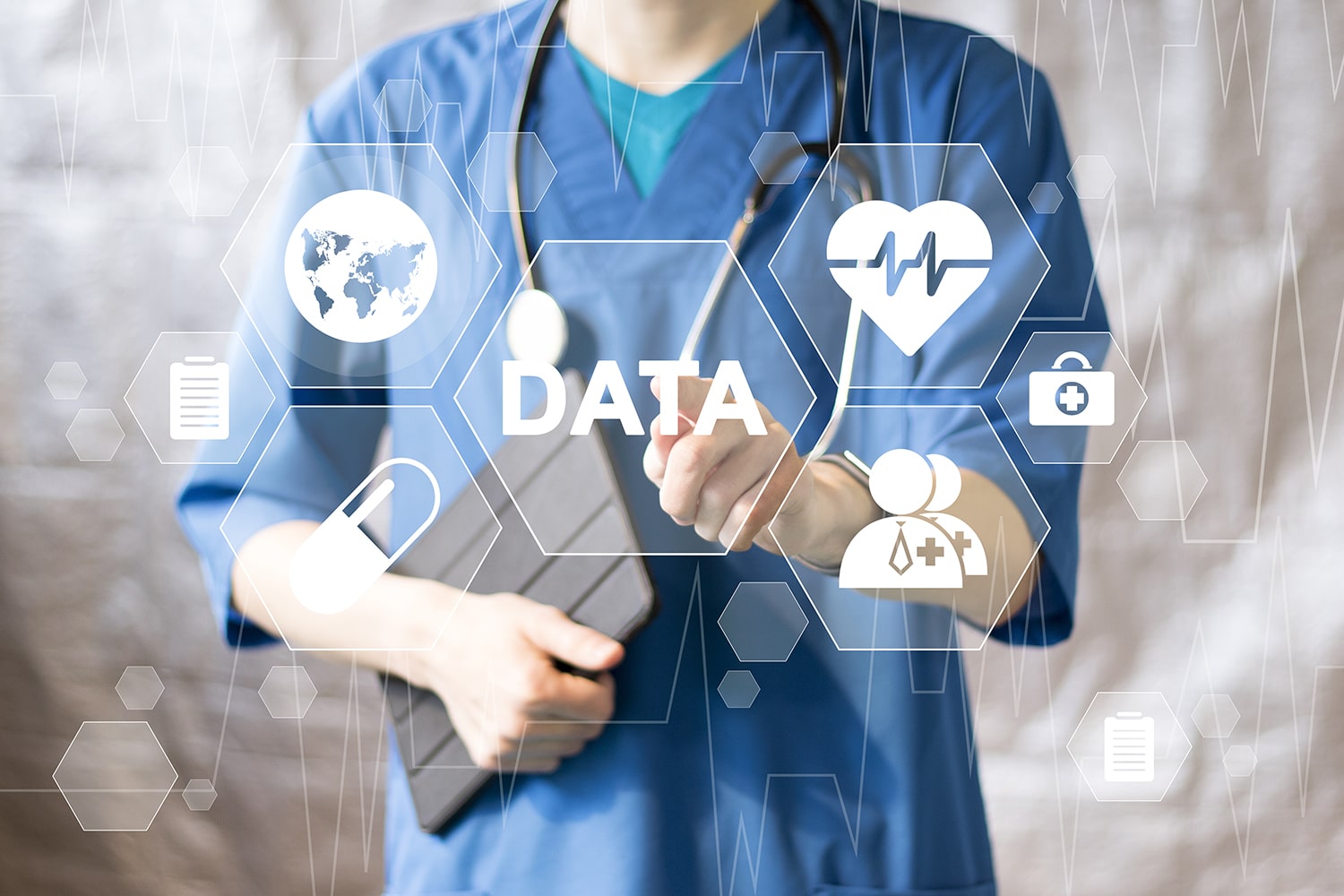Overview:
Big data and information are altering medical services by improving different parts of clinical practice and organization.

Key purposes include:
Prescient Examination: Big data empowers the expectation of sickness flare-ups, patient confirmations, and wellbeing patterns. By breaking down tremendous datasets, medical care suppliers can expect and plan for future medical care needs.
Customized Medication: By examining hereditary, natural, and way of life information, huge information takes into consideration the advancement of customized treatment plans custom-made to individual patients. This prompts more viable and designated treatments.
Early Conclusion: Big data examination can distinguish examples and relationships in quiet information that aid in the early identification of illnesses like disease, diabetes, and heart conditions, further developing guesses and treatment results.
Functional Effectiveness: Emergency clinics and facilities utilize big data to streamline their tasks, including staffing, planning, and asset portions. This works on understanding consideration and decreases functional expenses.
Patient Checking: Wearable gadgets and sensors produce a lot of wellness information that can be observed progressively. Enormous information examination helps in following patient vitals, identifying abnormalities, and giving convenient mediations.
Innovative work: Big data speeds up clinical exploration by amassing and dissecting immense measures of clinical preliminary information, hereditary data, and patient records. This speeds up the disclosure of new medicines.
Populace Wellbeing The board: By dissecting wellbeing information from whole populaces, enormous information helps in distinguishing general medical problems, overseeing constant sicknesses, and arranging preventive measures.
Misrepresentation Identification: Big data examination recognizes surprising examples and disparities in charging and asserting, assisting with distinguishing and forestalling false exercises in medical services.
Working on Persistent Results: Information from
electronic health records (EHRs) is dissected to distinguish best practices and successful medicines, prompting further developed patient consideration conventions and results.
Cost Decrease: By recognizing shortcomings and areas of high use, big data helps healthcare associations lessen costs.
By bridling the force of big data, healthcare suppliers can work on persistent consideration, improve functional proficiency, and advance clinical exploration, eventually prompting a more compelling and proficient medical care framework.